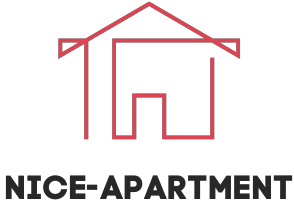As a tenant, you enter into a legally binding rental agreement with your landlord when you lease a property. This agreement outlines the rights and responsibilities of both parties. While landlords must maintain the property’s safety and livability, tenants must also fulfill specific obligations to maintain a harmonious and legally compliant relationship. In this article, we will explore the key responsibilities tenants have toward their landlords, helping you understand and comply with the rules and regulations governing rental properties.
Paying Rent on Time and in Full
One of the most important responsibilities you have as a tenant is to pay your rent on time and in full. This means that you must adhere to the payment schedule outlined in your lease and pay the agreed-upon amount without fail. Failure to make timely rent payments can result in late fees, eviction proceedings, and even court action. To avoid these negative outcomes, it is essential to prioritize prompt rent payments and budget accordingly.
In some states like South Carolina, a grace period may be provided by law or lease agreement, giving tenants extra time to pay rent without incurring penalties. However, consistently relying on grace periods can strain your relationship with your landlord and may lead to disputes or legal action down the line.
Maintaining the Rental Property
Another key obligation you have as a tenant is maintaining the rental property. This includes keeping the premises clean, sanitary, and in good condition. For example, you must dispose of garbage properly, avoid causing damage to the property, and carry out minor maintenance tasks like changing light bulbs and replacing smoke alarm batteries.
In some cases, your landlord may require you to perform additional maintenance responsibilities, such as yard work or snow removal. These responsibilities will be outlined in your rental agreement, so it is crucial to read this document carefully and understand your duties.
If you fail to maintain the rental property, your landlord may have the right to withhold your security deposit, charge you for repairs, or even terminate your lease. Therefore, it is in your best interest to take care of the property and promptly address any issues that arise.
Complying with Rules and Regulations
As a tenant, you must also follow any rules and regulations established by your landlord or outlined in your lease agreement. These may include restrictions on smoking, pet ownership, noise levels, and the use of common areas. Failure to comply with these rules can lead to penalties, eviction, or even legal action.
In addition to your landlord’s rules, you must also comply with applicable state and local laws governing rental properties, including health and safety codes, zoning ordinances, and noise restrictions. Ignorance of the law is not an excuse for noncompliance, so be sure to educate yourself on the relevant regulations in your area.
Providing Access for Repairs and Inspections
As a tenant, you must also cooperate with your landlord when they need access to your rental unit for repairs, maintenance, or inspections. Generally, your landlord must provide you with reasonable notice, typically 24 hours, before entering your dwelling unit. However, in cases of emergency, such as a burst pipe or fire, your landlord may enter without prior notice.
It is essential to accommodate your landlord’s requests for access, as failure to do so can lead to disputes, penalties, or even grounds for eviction. If you have concerns about your landlord’s requests for access, such as frequency or timing, it is crucial to communicate openly and seek a mutual understanding.
Giving Proper Notice before Vacating
Finally, if you decide to move out of your rental unit, you must provide your landlord with proper written notice, typically 30 days in advance. This notice period allows your landlord time to find a new tenant and helps them avoid financial losses due to a vacant property.
If you fail to give adequate notice, your landlord may have the right to withhold your security deposit, charge you for additional rent, or pursue legal action to recover damages. To avoid these consequences, always give your landlord proper notice and adhere to the terms of your lease agreement.
As a tenant, it is crucial to understand and fulfill your obligations to your landlord. By paying rent on time and in full, maintaining the rental property, complying with rules and regulations, accommodating access for repairs and inspections, and giving proper notice before vacating, you can foster a positive and legally compliant relationship with your landlord. Failure to meet these responsibilities may lead to financial penalties, strained relationships, or even eviction. By being proactive and diligent in meeting your tenant obligations, you can enjoy a harmonious and successful rental experience.

